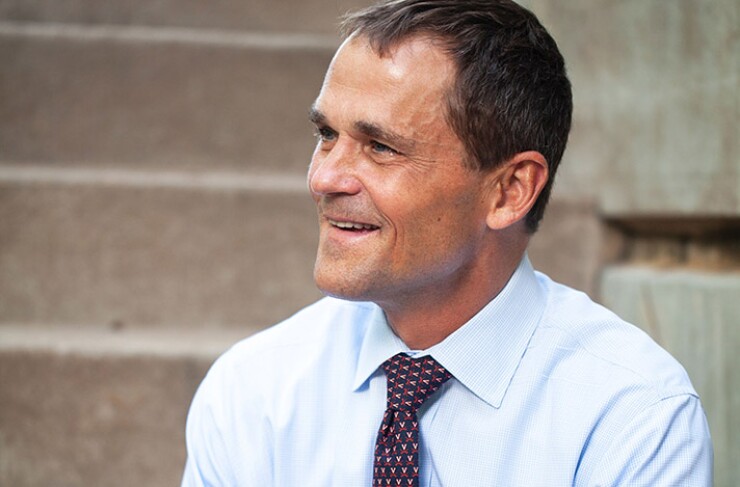
The extraordinary pressure higher education institutions face from the Trump administration was underscored last week by the forced resignation of the University of Virginia's president.
Much like threats to cut off hundreds of millions of dollars of federal funding for Harvard and Columbia universities, which the Trump administration said were failing in efforts to protect Jewish students from antisemitism, the U.S. Department of Justice threatened to cut off the University of Virginia over alleged discriminatory hiring practices, leading to University President James Ryan's resignation, announced Friday.
Department of Justice Assistant Attorney General Harmeet Dhillon said, "The United States Department of Justice has a zero-tolerance policy toward illegal discrimination in publicly funded universities."
Dhillon, of the department's civil rights division, appeared to reference diversity, equity and inclusion programs that supported non-white, non-male students at U.Va.
"When university leaders lack commitment to ending illegal discrimination in hiring, admissions, and student benefits — they expose the institutions they lead to legal and financial peril. We welcome leadership changes in higher education that signal institutional commitment to our nation's venerable federal civil rights laws."
The university
"Three different courts have rejected the Trump administration's efforts to restrict diversity, equity, and inclusion programs," said Center for American Progress Associate Director for Higher Education Policy Sara Partridge.
"Efforts to bully institutions such as the University of Virginia into complying with these illegal orders fly in the face of long-established law that prohibits the federal government from interfering in academic curricula," Partridge said. "Any civil rights investigations of higher education institutions should follow the well-documented procedures that are required and not be weaponized to serve a political agenda."
"This is the most outrageous action [the U.S. Department of Education] has taken on higher education," said U.S. Sen. Mark Warner, D-Va., to the Face the Nation television program on CBS. The DOE leaders "are doing damage to our flagship university. And if they can do it here, they'll do it elsewhere."
Warner asked, "If we don't have some level of academic freedom, what sort of country are we?"
Separately, Florida Gov. Ron DeSantis announced the formation of an alternate accrediting body for public universities Thursday.
Florida, Texas, North Carolina, South Carolina,
DeSantis said he had been working with the U.S. Department of Education to receive expedited federal approval for the body that will undergo a trial run, which he hoped would entice other states to join, news site The Hill reported.
"Threats to the accreditation process, if it leads to withholding federal grants and loans, would potentially lead to credit deterioration for an institution," said Howard Cure, director of municipal bond research at Evercore.
Federal student loans are reserved for accredited schools. Between 30% and 40% of all U.S. college students take federal loans. Many colleges couldn't survive without the tuition from students using these loans.
"Today, I announced that a new accreditor, the Commission for Public Higher Education, will offer an alternative that will break the ideological stronghold [of existing accreditation bodies]," DeSantis said. "With transparent, rigorous, outcomes-based standards, this accreditor will help ensure the Free State of Florida leads the way in higher education for decades to come."
Accrediting bodies must be reviewed by the National Advisory Committee on Institutional Quality and Integrity at least every five years, Cure said. Republicans and Democrats evenly choose its 18 members.
New accrediting bodies must be approved by NACIQI and the Department of Education, Cure said.
"There is a lot of federal administration
The
"Some of these institutions may experience rating pressure depending on the specific impacts they face," but most will remain strong credits, she said.
The greater risk lies with smaller, less competitive private colleges and less prominent public colleges, in areas of declining college-age demographics, Washburn said.
The administration's interference at U.Va. is the latest of many fights it has





